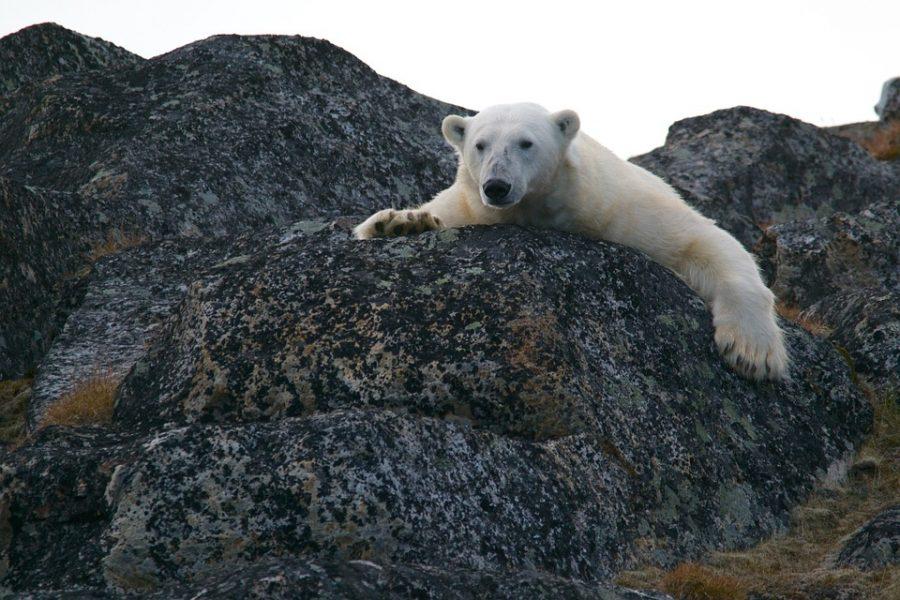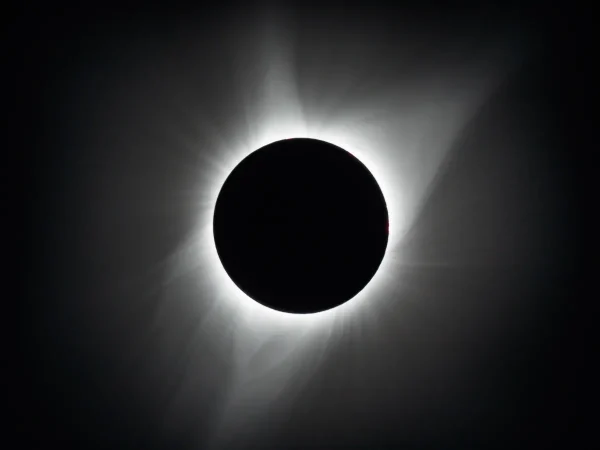Climate change: an inconvenient truth
Forced to reside outside of its natural, Arctic habitat, a polar bear exemplifies the effects of climate change on Arctic species. In Leonardo DiCaprio’s film, Before the Flood, DiCaprio explores the severity of the ever growing global surface temperature.
November 7, 2016
We hear about climate change practically everyday, whether it is from our Presidential candidates, Leonardo DiCaprio’s instagram-feed or Neil DeGrasse Tyson’s Youtube rants. Scientists and celebrities alike have been stressing the projected effects of climate change for years, but how is it affecting the world we live in now?
While the term “global warming” refers to the global surface temperature increase generated by humans offsetting greenhouse gases, it is not interchangeable with the term “climate change.” Climate change encompasses many other global changes that would be induced by humans increasing carbon dioxide. Simply put, climate change is the long-term change of climate, and global warming is the average surface temperature increase. Even the term “climate change” was not accepted by the U.S. climate research program until 1989, nearly 14 years after the term “global warming” was first used. The ramifications of “climate change” being generally accepted so recently is a reduced amount of time to curtail effects and raise awareness.
To junior and IB Environmental Science student Isabella Wishart, climate change is a grave issue: “There are many people that do not believe in climate change, but there are many studies that prove it. I believe that it is our responsibility to take care of the Earth.” The fact that humans can already see the long-term effects of increasing carbon dioxide emissions is exactly why scientists and activists believe climate change is so critical.
Sea Levels
This year, the global sea level reached an 8 inch increase since it was first reliably recorded in 1980. This added water comes from melted land ice and the expansion of seawater as it warms. Higher sea levels increase the severity of flooding, contaminate drinking and salinate drinking water, and threaten the lives of coastal animals and plants.
Warmer Weather
Although many are familiar with temperature increase as an effect of climate change, some would argue that they would enjoy a longer summer and that it allows for a longer agricultural season. However, pests like the corn earworm and mosquito are striking earlier this year, thriving in the warmer conditions. This not only benefits insects, but invasive plant species as well. Aggressive weeds, like kudzu, are more resistant to herbicides when carbon dioxide levels are higher in the atmosphere. When invasive species thrive, it decreases the biodiversity and resilience of some ecosystems.
Droughts
As if all of that is not bad enough, winters are beginning to look less and less like “Winter Wonderlands.” As of March 2015, the snowpack of California’s Sierra Nevada reached the lowest levels in recorded history. This contributes to California’s drought, considering annual snowmelt is one of the Golden State’s main water resources.
However, this is not to say that everyone is a contributor to climate change. Following in the footsteps of Al Gore and Guggenheim’s An Inconvenient Truth, Leonardo DiCaprio’s hard-hitting documentary, Before the Flood, released October 30. In his documentary, DiCaprio meets with scientists, activists and world leaders, such as Barack Obama, to explore the effects of climate change first-hand. DiCaprio asks scientists to-the-point questions about the impacts of climate change that the audience, themselves, were most likely wondering, too. The film outlines the visible effects of climate change while captivating an audience by telescoping in on ground-level victims, such as the polar bears of the Arctic or inhabitants of island nations. Before the Flood is streaming for free at nationalgeographic.com.





















